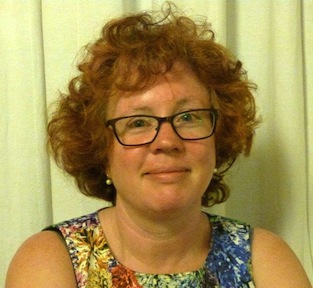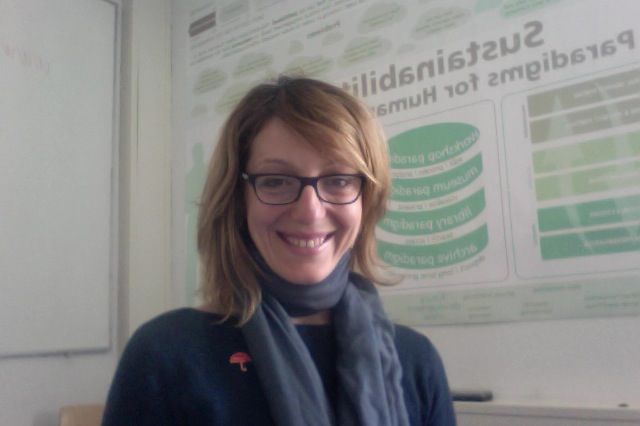Studying at the University of Verona
Here you can find information on the organisational aspects of the Programme, lecture timetables, learning activities and useful contact details for your time at the University, from enrolment to graduation.
Academic calendar
The academic calendar shows the deadlines and scheduled events that are relevant to students, teaching and technical-administrative staff of the University. Public holidays and University closures are also indicated. The academic year normally begins on 1 October each year and ends on 30 September of the following year.
Course calendar
The Academic Calendar sets out the degree programme lecture and exam timetables, as well as the relevant university closure dates..
| Period | From | To |
|---|---|---|
| I semestre | Oct 1, 2015 | Jan 9, 2016 |
| II semestre | Feb 22, 2016 | May 31, 2016 |
| Session | From | To |
|---|---|---|
| Appelli d'esame LINGUE - sessione invernale | Jan 11, 2016 | Feb 20, 2016 |
| Appelli d'esame LINGUE - sessione estiva | Jun 3, 2016 | Jul 29, 2016 |
| Appelli d'esame LINGUE - sessione autunnale | Aug 29, 2016 | Sep 29, 2016 |
| Session | From | To |
|---|---|---|
| TESI DI LAUREA - LINGUE | Nov 18, 2015 | Nov 20, 2015 |
| TESI DI LAUREA - LINGUE | Mar 30, 2016 | Apr 1, 2016 |
| TESI DI LAUREA - LINGUE E LL.SS | Jul 6, 2016 | Jul 8, 2016 |
| TESI DI LAUREA - LINGUE E LL.SS | Nov 23, 2016 | Nov 25, 2016 |
| Period | From | To |
|---|---|---|
| FESTA DELL'IMMACOLATA | Dec 8, 2015 | Dec 8, 2015 |
| VACANZE DI NATALE | Dec 23, 2015 | Jan 6, 2016 |
| Vancanze di Pasqua | Mar 24, 2016 | Mar 29, 2016 |
| FESTA DELLA LIBERAZIONE | Apr 25, 2016 | Apr 25, 2016 |
| FESTA DEI LAVORATORI | May 1, 2016 | May 1, 2016 |
| FESTA DEL SANTO PATRONO SAN ZENO | May 21, 2016 | May 21, 2016 |
| FESTA DELLA REPUBBLICA | Jun 2, 2016 | Jun 2, 2016 |
| Vacanze estive | Aug 8, 2016 | Aug 15, 2016 |
Exam calendar
Exam dates and rounds are managed by the relevant Foreign Languages and Literatures Teaching and Student Services Unit.
To view all the exam sessions available, please use the Exam dashboard on ESSE3.
If you forgot your login details or have problems logging in, please contact the relevant IT HelpDesk, or check the login details recovery web page.
Academic staff
 angela.alaimo@univr.it
angela.alaimo@univr.it
 alessandro.bigardi@univr.it
alessandro.bigardi@univr.it
 tiziana.mancinelli@univr.it
tiziana.mancinelli@univr.it
 sara.paolini@univr.it
sara.paolini@univr.it
 fabioantonio.scrignoli@univr.it
fabioantonio.scrignoli@univr.it

Zaccarello Michelangelo
 michelangelo.zaccarello@univr.it
michelangelo.zaccarello@univr.it
 +39 045 802 8330
+39 045 802 8330
Study Plan
The Study Plan includes all modules, teaching and learning activities that each student will need to undertake during their time at the University.
Please select your Study Plan based on your enrollment year.
1° Year
| Modules | Credits | TAF | SSD |
|---|
1st foreign language2nd foreign language1st foreign literature2nd foreign literature2° Year activated in the A.Y. 2016/2017
| Modules | Credits | TAF | SSD |
|---|
2nd foreign literature1st foreign literature1st foreign language2nd foreign languageOne course to be chosen among the following3° Year activated in the A.Y. 2017/2018
| Modules | Credits | TAF | SSD |
|---|
2nd foreign language1st foreign languagePhilology of the first or second language| Modules | Credits | TAF | SSD |
|---|
1st foreign language2nd foreign language1st foreign literature2nd foreign literature| Modules | Credits | TAF | SSD |
|---|
2nd foreign literature1st foreign literature1st foreign language2nd foreign languageOne course to be chosen among the following| Modules | Credits | TAF | SSD |
|---|
2nd foreign language1st foreign languagePhilology of the first or second language| Modules | Credits | TAF | SSD |
|---|
Legend | Type of training activity (TTA)
TAF (Type of Educational Activity) All courses and activities are classified into different types of educational activities, indicated by a letter.
English literature 2 (2016/2017)
Teaching code
4S002927
Teacher
Coordinator
Credits
9
Language
English
Scientific Disciplinary Sector (SSD)
L-LIN/10 - ENGLISH LITERATURE
Period
I SEMESTRE dal Oct 3, 2016 al Jan 21, 2017.
Learning outcomes
The course aims at providing the students with literary competences concerning the authors and genre modes deemed to be representative of English literature and culture in the scheduled period, and, more generally, at helping them to develop an individual critical approach to the texts chosen for analysis and discussion, as well as to their contexts.
Program
"The art of self": confession, life-writing, narrative identity, and narrative irony.
The module aims at accompanying the students through an investigation of the theoretical issues and the formal and thematic dynamics of autobiography by focusing their attention on three texts whose rhetorical complexity never ceases to challenge the readers's interpretation.
Primary sources:
-DANIEL DEFOE, "Roxana: the Fortunate Mistress" (1724), Oxford World's Classics;
- LAURENCE STERNE, "The Life and Opinions of Tristram Shandy, Gentleman" (1760-1767), Voll. I, IV, VII;
- W.M.THACKERAY, "The Memoirs of Barry Lyndon, Esq." (1844, 1856),Oxford World's Classics.
Critical Bibliography:
- the Introductions in the editions given above;
- S. Chatman, "Discourse: Covert versus Overt Narrators", ch. 5, in "Narrative Structure in Fiction and Film", 1983;(Frinzi)
- D. DURANT, "Roxana's Fictions", Studies in the Novel, Vol.13, No.3 : 225-236 (cfr. Jstor)
- H. OSTROVICH, "The Reader as a Hobby-Horse", in T. Keimer (ed.), "Laurence Sterne's The Life and Opinions of Tristram Shandy: A Casebook" (2006)(Frinzi);
-R.P FLETCHER, "'Proving a thing even while you contradict it': Fictions, Beliefs, and Legitimation in "The Memoirs of Barry Lyndon, Esq.", Studies in the Novel, Vol.27, No. 4 (1995): 493-514
Reference Handbook:A. Sanders, "The Short Oxford History of English Literature" (1994).
Other optional suggestions concerning critical readings will be given during the course.
OBLIGATORY SUPPLEMENTARY critical readings for non-attending students:
-_ M. DI BATTISTA & E.O. WITTMAN (eds.), "Introduction" (pp.1-20), in "The Cambridge Companion to Autobiography", Cambridge UP (2014);
-J. RICHETTI (ed.), "The Cambridge Companion to Daniel Defoe", Cambridge UP (2008):Introduction + "Defoe as a Narrative Innovator"(pp.121-138);
- J. CRANE, "Defoe's Roxana: the Making and Unmaking of a Heroine", The Modern language Review, Vol.102, 16 (Jan. 2007): 11-25 (cfr. Jstor);
- J.P. HUNTER, "Clocks, Calendars, and Names: The Troubles of Tristram and the Aesthetics of Uncertainty", in J. Douglas Canfield & P. Hunter (eds.),"Rhetorics of Order/Ordering Rhetorics in English Neoclassical Literature", pp.173-198.
N.B.: Apart from the articles, which can be found on Jstor database, all the critical bibliography can be accessed at Frinzi Library.
Examination Methods
ORAL EXAM
The exam is meant to assess, through oral questions, the student's ability to engage critically with the literary texts scheduled for the course, by resorting to the critical/theoretical issues dealt with in class, as well as to the critical bilbiography. The latter is meant as obligatory reading and the knowledge of it will be tested through oral questions, too.
N.B.: In order for the students to sit for this exam they must have passed the first-year exams of English literature and language.
They are also expected to have a copy of the programme and their own primary texts with them.
Validity of the programme: 2 academic years (i.e. until February 2019).
Type D and Type F activities
To discover all the teaching activities accredited by the foreign teaching college click here
Career prospects
Module/Programme news
News for students
There you will find information, resources and services useful during your time at the University (Student’s exam record, your study plan on ESSE3, Distance Learning courses, university email account, office forms, administrative procedures, etc.). You can log into MyUnivr with your GIA login details: only in this way will you be able to receive notification of all the notices from your teachers and your secretariat via email and soon also via the Univr app.
Student login and resources
Assegnazione tutore
Attività accreditate D/F
Calendario didattico dettagliato
Cambio lingua curriculare
Competenze informatiche
Competenze linguistiche (prima e seconda lingua)
Competenze linguistiche in triennale (terza lingua CFU F)
Compilazione del piano didattico
Corso di Lingua portoghese
Erasmus+ e altre esperienze all'estero
Linguistic training CLA
Graduation
List of theses and work experience proposals
| Stage | Research area |
|---|---|
| PROGETTO MAMBRINO Stage per bibliografia | Various topics |
Stage e tirocini
Nel piano didattico della laurea triennale in Lingue e culture per l’editoria (L11 ED) è previsto un tirocinio/stage obbligatorio (CFU 6).
Le attività di stage sono finalizzate a far acquisire allo studente una conoscenza diretta in settori di particolare interesse per l’inserimento nel mondo del lavoro e per l’acquisizione di abilità professionali specifiche.
Le attività di stage sono svolte sotto la diretta responsabilità di un singolo docente presso studi professionali, enti della pubblica amministrazione, aziende accreditate dall’Ateneo veronese.
I crediti maturati in seguito ad attività di stage saranno attribuiti secondo quanto disposto nel dettaglio dal “Regolamento d’Ateneo per il riconoscimento dei crediti maturati negli stage universitari” vigente.
- Tutte le informazioni in merito agli stage per futuri studenti sono disponibili alla pagina Stage e tirocini.
- Tutte le informazioni in merito agli stage per studenti iscritti sono pubblicate in MyUnivr - come fare per - stage e tirocini.
- Tutte le informazioni in merito agli stage per le aziende sono disponili alla pagina Stage e tirocini per azienze.
Ulteriori informazioni al seguente link https://www.univr.it/it/i-nostri-servizi/gestione-carriere-studenti-lingue-e-letterature-straniere/stage-e-tirocini-lingue-e-letterature-straniere






























